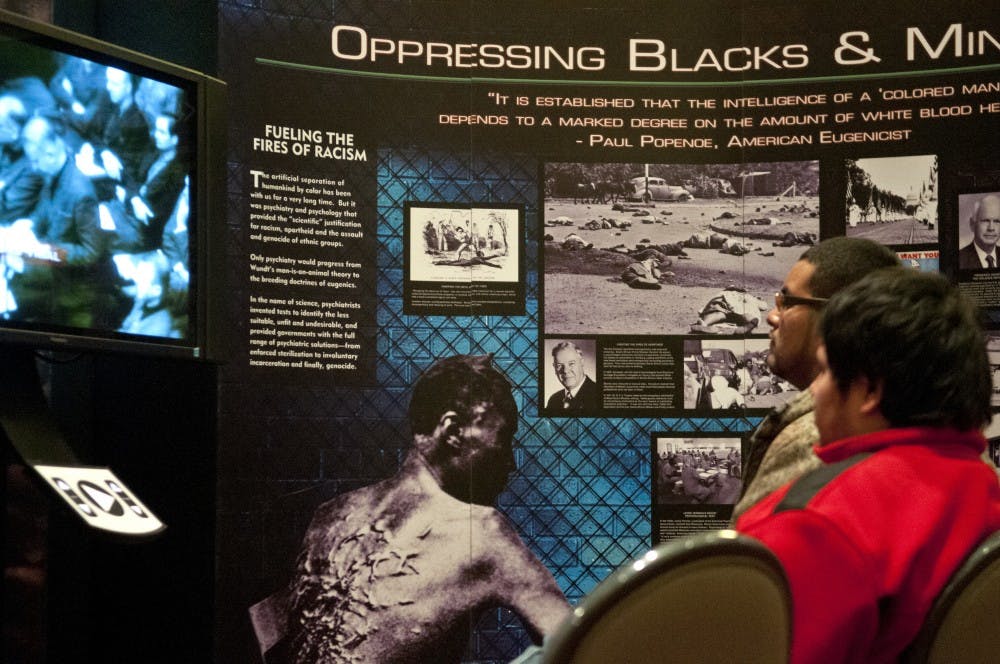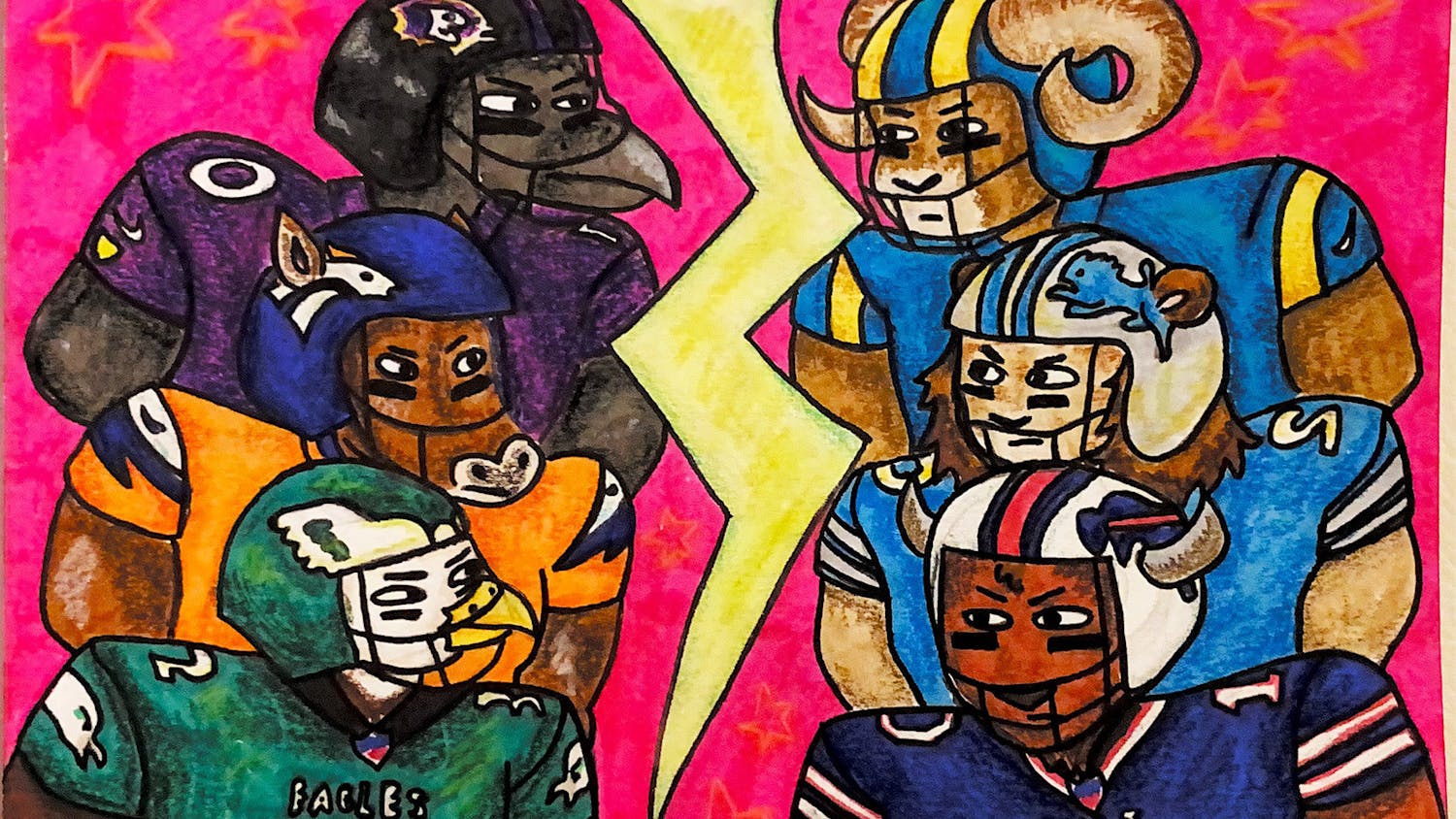news@dailylobo.com
On Monday, Citizens Commission on Human Rights (CCHR) opened a display in the SUB alleging the destructive role of psychiatry in peoples’ lives.
“Psychiatry: An Industry of Death” is set up SUB Ballroom B and runs through Saturday. The exhibit consists of 150 feet of display panels interspaced by 14 flat-screen TVs showing short documentaries reinforcing the material on nearby panels. There are 12 such traveling exhibits that tour internationally.
According to Roshelle Greer, a CCHR volunteer at the exhibit, CCHR was founded in 1969 by the Church of Scientology and Thomas Szasz, but today it is separate from the church. At the same time, many of CCHR’s members are Scientologists, and most of its funding comes from Scientologist backers as well.
But Greer stressed the independence of the organization.
“We’re not formally affiliated with the Church of Scientology anymore,” she said. “We’re here to bring awareness about this cause. There’s no other agenda.”
Greer mentioned how there have been problems at exhibits in the past involving individuals who disagree with the Scientologist roots of the organization.
“We have to have security at events, just in case,” she said.
A ribbon cutting ceremony including several speakers was held Monday evening outside the exhibit.
CCHR-New Mexico’s lead investigator, Joel Ervin, spoke about the purpose of the exhibit.
“We want to shine the light of truth on psychiatry and its sordid history,” he said.
One of the main points of the exhibit is the allegation that psychiatrists profit through mental illnesses by first voting on what should be considered an illness, and then by working with pharmaceutical companies to create drugs for those illnesses.
“Psychiatry has repackaged human behaviors as diseases in order to sell drugs,” Ervin said.
Ervin also said that the medication used to treat these illnesses often leads to self-destructive behaviors such as suicide.
Get content from The Daily Lobo delivered to your inbox
Pat Mena, author of “You’ll Be Fine, Darling,” also spoke and related her personal connection to the misuse of drugs. She spoke about her son, Anthony Mena, who was diagnosed with post-traumatic stress disorder after serving in Iraq.
Anthony Mena was prescribed 35 different medications for conditions including sleeplessness and anxiety. Pat Mena said it was this overmedication that resulted in her son’s death in his sleep several months after his diagnosis.
The University’s policy on free expression and dissent, found in both the Student Handbook and the Business Policies and Procedures Manual, explicitly says that “the expression of free exercise must be balanced with the rights of others to learn, work and conduct business,” and only speech that “unduly interferes with the rights of others or the ability of the University to carry out its mission is not protected by the First Amendment and violates this policy.”
This approach results in a wide breadth of topics that are able to be discussed on UNM property, provided the related organizations do so in a manner that meets the civility definitions laid out in the policy, said Dianne Anderson, director of communications at UNM.
At the same time, the process for reserving rooms for events in the SUB, available on the building’s website does not include a review of the content that organizations plan to display or discuss in reserved rooms, Anderson said.






